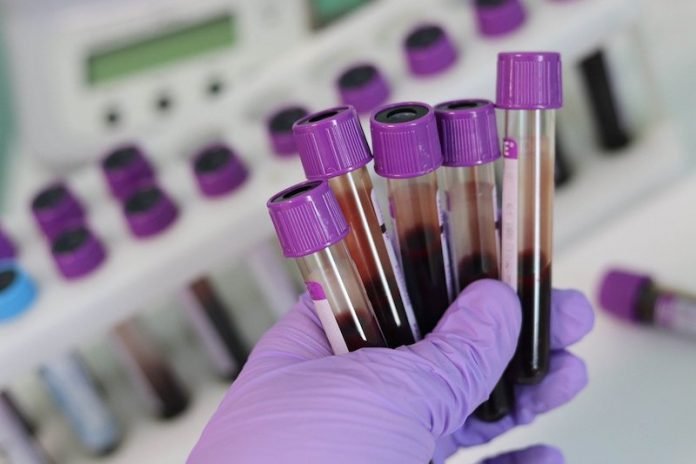
In a new study, researchers developed a new way of accurately predicting if people will develop Alzheimer’s disease.
The new method is a blood test that could be a potential “gamechanger” to fight against the disease.
The researchers believe the blood test can be used to predict Alzheimer’s years before the onset of symptoms.
The research was conducted by a team at Lund University and elsewhere.
Around 50 million people live with Alzheimer’s, a degenerative brain disease that accounts for more than half of global dementia cases.
While its precise mechanism is not fully understood, Alzheimer’s appears to result from the accumulation of proteins in the brain that is thought to lead to the death of neurons.
Previous research has shown that some of these proteins are traceable in the blood of patients and tests based on their concentrations can be used to diagnose the disease.
In the study, the team analyzed blood samples taken from more than 550 patients with minor cognitive impairments.
They developed and validated models of individuals’ risk of Alzheimer’s disease based on the levels of two key proteins in the blood.
The model-based off of these two proteins had an 88% success rate in predicting the onset of Alzheimer’s in the same patients over the course of four years.
The team says this prediction method could have a strong impact on Alzheimer’s cases because the plasma biomarkers from blood tests are promising due to their high accessibility and low cost.
If these blood biomarkers can predict Alzheimer’s in larger, more diverse groups, researchers could see a revolution in how we test new dementia drugs.
Scientists need further validation of the results, but in the context of other recent findings, this could be a transformative step to earlier diagnosis, as well as testing new treatments at earlier stages of the disease.
One author of the study is Nicholas C. Cullen.
The study is published in Nature Aging.
Copyright © 2020 Knowridge Science Report. All rights reserved.



